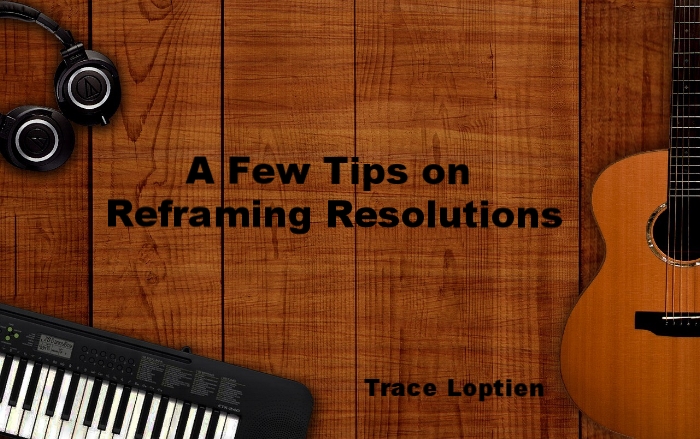At EHS, we have heard many individuals talk about withstanding public and personal criticism in the the entertainment industry, including effects of comparison or other self-criticism. The question is, how do entertainers tame these inner voices, manage outside opinions, and maintain a healthy mindset while continuing to do their art and perform? How do entertainers entertain the critics in the music business?
This month we were excited to tap into the faith based genre of music and sit with Christian Music Artist, Jason Gray, to discuss his experience in the entertainment industry and the impact of criticism for him. Our meeting was courtesy of another insightful individual in the industry, John Mays, VP of A&R at Centricity Music, who organized and accompanied this interview. Jason Gray signed with Centricity in 2006 and has released seven albums since then with his most recent 2016 release, “Where the Light Gets In”. We later talk about his hit song “More Like Falling in Love” and the criticism he experienced for the song; but before we go into the depths of the criticism topic, let’s get a little background on Jason Gray and his music.
When listening to Jason’s music, there is an underlying theme of finding strength in the face of adversity. Early in the interview, Jason pauses to introduce one of his first personal experiences with adversity, a speech handicap, which causes him to stutter. Jason was diagnosed with the speech disorder as a child and states he stutters when speaking, but for the most part it has not affected his singing. A obstacle that may cause individuals to shy away from singing in the spotlight has seemingly left Jason’s path unaltered. Jason reports his stuttering is noticeable during radio interviews and such, but he simply acknowledges it and continues through. He moves on to talk about growing up in a broken home and the part music played during this time. He tells us about difficult times in the aftermath of his parents divorce, spending nights in bars while his mother performed in various bands, and the transition when his mother gave up the bar scene for performing at church and church revivals. Jason explains how he used music during these trying times. “We read books to know we’re not alone. This was music for me”, Jason says. He reports being a bit of an introvert and shy due to his speech handicap and turning to music. Jason would later find his calling in Christian Music, turning difficult experiences into poetic songs of hope and encouragement.
Jason reports feeling his first whisper from God while listening to “Bridge Over Troubled Waters”, but recalls being drawn to soulful and spiritual music prior to finding a relationship with God. Jason was in his first year of college when he decided to pursue music and dropped out of school. A common risk we hear other entertainers or aspiring musicians struggling with.
Leaving what is perceived as the safe track of college or full-time employment to pursue a career in music. Welcome to Nashville, the land of big dreams with big risks! We often hear about entertainers choosing a path less traveled, taking a risk, making mistakes, challenging views or social norms through their art, and just as often, being greeted by criticism. Criticism that sometimes leads to internalized self doubt or self criticism. So, let’s first look at this. Why do people criticise?
Simplest answer. Fear.
Over and over again when we look at criticism, it seems to come down to fear. Now this is not to discredit other contributing emotions, but for the majority of cases, fear is playing a leading role in criticism. Some may say anger is their leading emotion, but many psychologist would argue that anger is a secondary emotion, generally driven by hurt or fear (https://healthypsych.com/psychology-tools-what-is-anger-a-secondary-emotion/). For example, when an individual leaves college in pursuit of a risky career, they may face criticism from loved ones who are “fearful” of the outcome. When our views or social norms are challenged, this can trigger “fear of change” (in an ever changing world, we often cling to socially accepted norms). And of course when mistakes are made “fear” generally Airbnb’s a room in our mind for a while. So now, lets give you a mic, open up social media pages in your name, and turn a spotlight on. Your goal is to write music and go through your career without taking any risks, stepping outside of social norms, challenging others ideas, or making any mistakes. And go!… By the way, you are now some form of a public figure, so remember they’re watching… Do you really want to wear that pink shirt for your Instagram post?
When we asked Jason about the impact outside criticism has on him and his career, he said he “learned to give people permission to misunderstand me”. Jason explained he came to this conclusion after he received heavy criticism for his song “More Like Falling in Love” from “theological watchdogs who interpreted me as writing a God is my girlfriend song”. He states he initially exhausted himself in attempts to defend it. He remembers getting a three page letter from one person and another large church apparently dedicated an entire service to the disapproval of the song. Ironically, this would be one of Jason’s hit songs, making it difficult to hide it away in the repertoire of music. So how do you entertain the critics? Perhaps sometimes you just keep playing the song and giving others permission to misinterpret your art.
There are compounding factors to criticism in the music industry. Not only are musicians publicly displaying themselves and their art, but for many it ties into their livelihood. If enough people don’t love what you represent or the music you are creating, you risk the income needed to continue your career in music. Jason says he is lucky to have the support he does through Centricity to continue writing music on topics that are true to him. Jason recalls writing a song after his divorce on depression, feeling certain it was too raw and wouldn’t make the recording list during the song reviews. He states John (who is still present during this interview) said “well, that’s got to be on there!”. Jason continues to say he doesn’t feel a pressure to present himself in an optimistic light. He uses his music to reach out to others and speaks on depression, which he openly reports having struggled with. John Mays chimes in at this point to elaborate; stating some labels/management groups may feel a need to build fences around the artist to protect them from criticism, but he doesn’t feel the need to do this with Jason. So how transparent do we present ourselves in difficult times or on a personal level? Jason had a unique response to this, referencing back to his divorce. He referred to a friend of his, Walter Wangerin, who told him, if you share this part of your life while you’re in the trenches, you are asking your audience for something (support). If you wait until you come out the other side, you now have something to offer your audience. A lot of artists songs speak on a deep personal level, which can leave them vulnerable to outside critics. For Jason, it seems it’s not necessarily about how transparent you are with your audience, but rather the timing and motivation or purpose behind sharing. Are you in a place emotionally to receive any possible criticism and what are the intended outcomes?
Criticism has a sneaky way of becoming internalized and morphing into self-criticism, especially in the form of comparisons. And again, the stakes are high for many in the music industry since others critiques can directly impact your paycheck among other things. When self-criticism takes up residency in your mind for long enough, you risk compounding mental health issues (depression, anxiety, substance abuse, etc…). This can lead to displaced energy as you are trying to climb out of the negativity of your mind instead of putting your best self into your career. Of course this cycle, unless broken, can then lead to more self-criticism. We asked Jason about any encounters with self-criticism and comparisons. He shared his experiences with comparisons on tour (audience size others draw, merch they sell…) and how this would sometimes get internalized as “I’m not good enough” or “they don’t like me”. Jason humbally admits he would often take a defensive stance in his mind when other performers had better outcomes at a show, such as “they don’t get me”. Jason says he has learned to use these moments to reflect on what he could be doing better to connect with his audience, instead of getting lost in comparison. Comparisons and self criticism can come at all levels of success, but perhaps with recognizing and redirecting these thoughts, we can avoid entertaining the critics in our minds and refocus on entertaining the audience.
Jason is open with us and through his music, about his struggles with depression. He reports he can sometimes go into those dark places and “get crippled for a long time”. Jason states he has learned to think about his depression as “it’s one feeling in a parade of feelings and if I don’t hold hands with it, it will walk past”. He tells us slightly smiling, “I try to be conscious about which feelings I hold hands with”. Jason says he continues to do his work in protest of his inner darkness. He states his job is to love the audience and he keeps reaching out to others through his music despite negative thoughts or feelings.
So maybe that’s it… Entertaining the critics involves recognizing the outside criticism as others fears and allowing them to misinterpret you and your art. In addition to, identifying self deprecating thoughts and deciding which thoughts or feelings to hold hands with. With that said, how will you chose to entertain the critics in your life today? We greatly appreciate Jason Gray taking time out of his busy schedule to sit with us and John Mays for setting up this interview. I personally feel fortunate to have spent a morning with these two, hearing their insights and Jason’s journey. It is difficult to encapsulate the positive energy, kindness, and humor Jason exudes into a written piece. However, I will say these are two individuals who (perhaps unbeknownst to them) can send you off feeling better about the day to come. Now, if there were only a book to expand upon some of the experiences and insight Jason shared with us...
Interview and Article Written By: Elizabeth Porter, President of EHS





